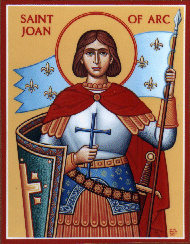Ancient Greek Hymns to Athena
translations and notes by Shawn Eyer to commemorate the dedication to Athena Parthenos of the temple and statue which bear her name
The Homeric Hymns
The religious poetry to which we refer as the Homeric Hymns was attributed in ancient times to Homer, the poet of the Iliad and Odyssey. Although nobody today regards them as the work of Homer, they are quite skillfully composed and may be dated very early. For scholars they represent an important source of information about Greek religion. The Homeric Hymn to Demeter, for instance, is a key document in the understanding of the Eleusinian mysteries.
There are two Homeric Hymns to the goddess Athena, one extolling her virtues as patron of the city, the other recounting beautifully her birth from the cleft brow of father Zeus.
Homeric Hymn 11 To Athena
I begin to sing of Pallas Athena, the dread Protectress of the city,
who with Ares looks after matters of war, the plundering of cities, the battle-cry and the fray.
It is She who protects the people, wherever they might come or go.
Hail, Goddess, and give us good spirits and blessed favor!
Notes
I begin to sing of Pallas Athena…
Pallas is an ancient epithet of Athena. Although some have argued that it is a form of pallo, to brandish, most feel that pallas is in fact an archaic word for maiden.
…dread Protectress of the city…
"City-protecting" (erusiptolis) is a common epithet of Athena.
Homeric Hymn 28 To Athena
I begin my song of Pallas Athena, illustrious goddess with sharp grey eyes.
Crafty one, She, with a heart relentless,
modest Virgin, Protectress of the city!
The valiant Tritogeneia was roused by Zeus the wise
from his own awesome brow, the tools of battle on her arm,
glittering and gold: All the immortals were stunned.
Without delay she leapt from the ever-living skull
to come before Zeus, master of the aegis,
and the sharp javelin rattled in her hand.
Mighty Olympos was sent madly spinning
by the potency of her, of the Grey-eyed one.
From every direction the earth let loose a chilling scream.
Waves, deep and dark, stirred up in the seething ocean,
and all at once spray jetted from the sea.
The shining son of Hyperion brought his swift steeds to rest, waiting long,
until the Maiden divested her incorruptible shoulders of the godlike armor…
She, Pallas Athena! Wise Zeus laughed!
That is why I say it too: Hail to you, Daughter of aegis-wielding Zeus!
While now I sing a different song, I always remember you!
Notes
illustrious goddess with sharp grey eyes…
This term (glaukopis) is an epithet of Athena throughout Homeric literature and is found in later sources as well. Often it is simply rendered "grey-eyed." However, the sense of the word may refer less to the color of the eyes as to their glare or opacity owing to the gemstones used for the eyes of statues of Athena.
modest Virgin, Protectress of the city…
"Virgin" is parthenos, for which the Parthenon is named.
The valiant Tritogeneia was roused…
Although Tritogeneia ranks with Pallas as an ancient epithet of Athena, its exact meaning is now unknown. "Born of the Triton" and "triple born" are typical suggestions.
Zeus, master of the aegis…
The aegis was a magical shield in the property of Zeus. The Homeric Hymn twice refers to Zeus as "aegis-holder."
The Orphic Hymn to Athena
The Orphic Hymns are a collection of eighty-seven ritual invocations which were probably used by certain initiates of the Orphic mystery cult. Though some have placed them far later (as well as far earlier), they were probably composed between 100 BCE and 150 CE.
The Orphic Hymn to Athena celebrates the goddess with a dizzying barrage of colorful and often baffling imagery.
To Athena, with an incense of aromatic herbs.
Pallas, you only-begotten One, born of mighty Zeus, awesome you are, and divine:
Goddess so blessed, lifting high the turmoil of the fray,
Mighty One unspeakable yet so well spoken of!
Great-named One at home in a vault of stone,
Caught up in haughty hills and wandering the shaded mountain’s ridge,
You who put a dance in the heart and glory in embattlements,
You can put the sting of mania into a mortal soul!
Athletic Maiden with a heart sublime,
Slayer of the Gorgon, fugitive of the bridal bed,
Mother of Art in all your abundance, catalyst of progress!
You bring folly to the corrupt and a sense of purpose to the pure!
Indeed, you are male and female in one,
Patron of war and wisdom,
You are fluid of form, a dragon,
Infused with inspiration of the Gods!
Rightly-honored One, who brought Phlegran giants down to defeat,
You driver of steeds, Tritogeneia, save us from evil, bearing Victory in your arms!
Day and night, eternally, in even the loneliest hours,
Hear my prayer, and grant us an abundant peace, fulfillment, good health.
Make prosperous the hour, gray-eyed One, inventor of Art,
The object of the people’s ceaseless prayers–
My Queen!
Notes
Pallas, you only-begotten One…
This term, monogenes, means only-born. It is interesting to note that another important Wisdom-figure, the divine Logos, is described as "the only-begotten of God" in the Johannine literature of the New Testament.
Mighty One unspeakable yet so well spoken of…
The Greek arrhete refers to a reverent, even fearful, silence. In the hymn it is followed immediately by rhete, its opposite.
Great-named One at home in a vault of stone…
The Greek word antrodiaitos literally means "to make one’s home in a cavern" or "grotto." This seems an unexpected chthonic attribution, although one might understand the Parthenon as an artificial cavern of sorts.
Slayer of the Gorgon, fugitive of the bridal bed…
An epithet of Athena, who aided Perseus in the act of destroying the monsters. Athena’s statue in the Parthenon depicted the head of the Gorgon on her breastplate, the aegis.
You driver of steeds, Tritogeneia, save us from evil, bearing Victory in your arms…
The name Tritogeneia is of uncertain derivation and meaning. Nikephore means "carrying victory," and in the ancient Parthenon Athena was shown carrying Nike, victory personified.




